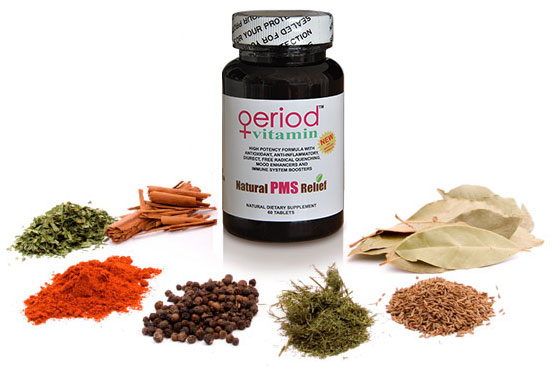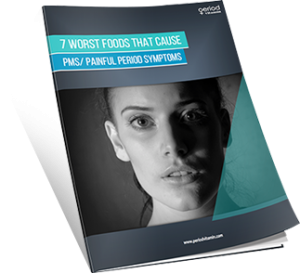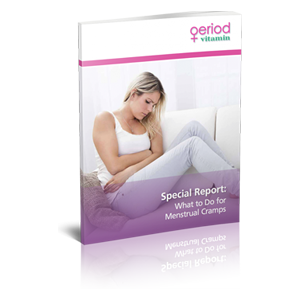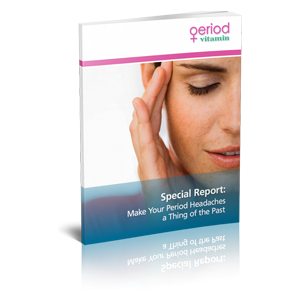 Do you struggle with menstrual headaches?
Do you struggle with menstrual headaches?
Do you have these headaches before, during or after menstruation?
What are your symptoms and are these usually migraine headaches?
If so how do you get rid of them and what kind of remedies do you use?
What causes them and how long do they last?
These and other questions will be addressed here.
Symptoms and Causes of Period Headaches
So what are the symptoms and causes of these headaches?
Do you ask “Why do I get these terrible headaches?”
If your headaches are actually during your period rather than premenstrual cycle, there are different causes and perhaps symptoms for them. In order to understand let’s look at the cycle itself.
Premenstrual (pms): This stage lasts for two to three weeks prior to actually beginning the period of bleeding.
Stage One: This is the Follicular stage when estrogen is increased and lining of the uterus thickens.
Stage Two: This is the Luteal stage when estrogen is decreased and progesterone is increased.
Period: This is the stage of bleeding where the uterine lining, eggs and water is expelled.
Post Menstrual: Some women have symptoms for one to two weeks following the cessation of bleeding.
Various stages in the menstrual cycle are responsible for various symptoms and will respond differently to a potential cure or means to alleviate the symptoms. Many women experience fever and nausea along with the headaches. There can also be a lot of tension during the cycle that can cause these severe headaches as well.
The overwhelming majority of women experience headaches related to their menstrual cycle. The number may be as high as 65-70% of all women have this issue. Headaches tend to show up in the second and third stages of the cycle and can be at their worst right at the end of the Luteal stage before the actual bleeding begins.
The main causes for these headaches is usually vascular constriction and that is in itself caused by high levels of estrogen and they decrease when there is more progesterone than estrogen. This is why some women who take birth control pills with high amounts of estrogen experience more headaches than those that do not or those who take pills with less estrogen and more progesterone.
Another less known cause of these headaches is malfunctioning platelets along with a reduction in endorphins being released into the brain and lower magnesium levels. These factors can cause depression, moodiness and headaches. In addition the prostaglandins and arachidonic acid that is produced during the first and second stages of the cycle add to the headaches during and post period. Some women also have unusual nervous system response to these changes and they therefore feel more pain that others whether it be headaches or abdominal pain or even back pain.
Fortunately there are things you can do to prevent, avoid and relieve some of these headaches. Many women are asking every month what can I do for these headaches or what can I take for them? What works best to stop the headaches and give some relief?
Remedies and Treatments for Menstrual Headaches
Pharmaceutical Remedies: There are not a lot of pharmaceutical remedies whether they are prescription of over the counter. However there are a few if you choose to use pharmaceuticals.
The best over the counter (OTC) medications available are analgesics in general and medications made specifically for a woman’s menstrual cycle symptoms. The medication made for the menstrual cycle that can be effective for headaches includes:
Pamprin and Midol: Both of these should be taken during the PMS part of the cycle and then if needed continued throughout the cycle. Both of these will assist in the control of cramping, bloating, fever, or mood changes also associated with the cycle. In addition to these you have all the OTC analgesics/NSAIDS (non-steroidal anti-inflammatory drugs) such as acetaminophen/ibuprofen/naproxen and others.
The prescription medications used for this are also the NSAIDS with the most commonly prescribed for menstrual headaches being Naprosyn, Orudis, Relefen, Nalfon, Motrin or Advil. Diuretics have also been used along with other prescription drugs such as Verapamil, Migranal, Depakote, Propranolol and Cafergot. NSAIDS are the primary drug of choice for most physicians who are going to prescribe for menstrual headaches.
None of these medications will treat the causes of the migraine or menstrual headache. They can only treat the symptoms and they cannot prevent the headaches from happening unless you take them all the time which is explicitly not recommended.
Natural and Home Remedies:
There are a variety of natural and home remedies that can be used to prevent or treat headaches during the menstrual cycle.
The goal would be to prevent them first but if that is not possible to have adequate treatment and pain relief. There are a few very specific herbs that will help and they include:
- Evening Primrose Oil – is a natural pain killer and will certainly help with menstruation headaches. It also has natural anti-inflammatory effects very similar to those of Omega Fatty Acids and Omega 3 in fish oil.
- Willow Bark – white willow bark can reduce fever, pain and swelling.
- Flax Seed Oil – produces essential fatty acids that balance Omega 6 and 3 FA’s. Thishelps to alleviate the headache.
 FeverFew – this is one of the most effective herbs for treating menstrual cycle migraines and headaches. It also prevents headaches of all kinds. It can be taken daily at 125mg to prevent migraines. It also has anti-inflammatory and vascular dilator properties.
FeverFew – this is one of the most effective herbs for treating menstrual cycle migraines and headaches. It also prevents headaches of all kinds. It can be taken daily at 125mg to prevent migraines. It also has anti-inflammatory and vascular dilator properties.
- Ginger– has many anti-inflammatoryproperties and also calms the stomach when NSAIDS might upset it. This is best used in a tea.
- Butterbar – helps with inflammation and 50mg tablets should be taken 3 times a day for one month and thereafter twice a day. Use only pharmaceutical grade Butterbar and don’t use it if you are pregnant or allergic to marigolds, ragweed, chrysanthemums or daisies.
Supplements:
- Magnesium: Recent studies show that magnesium levels are lower in many women during the menstrual cycle. A study published in the International Journal of Biomedical Research – “SERUM INORGANIC PHOSPHORUS, URIC ACID, CALCIUM, MAGNESIUM AND SODIUM STATUS DURING UTERINE CHANGES OF MENSTRUAL CYCLE: Biswajit Das, Prasanna Chandra M, Sumeru Samanta, Ayaz K Mallick, Sowmya M. K.” has shown that “The serum magnesium level was significantly decrease from menstrual to proliferative phase (p<O.O5), thereafter it again rose. The levels of serum sodium were significantly decreased in secretory phase as compared to other two phases of the cycle.”
This indicates that adding in magnesium supplements may be a cure for or a preventive agent in respect to menstrual cycle headaches. It appears that magnesium reduces the reaction of nerves that become agitated during the menstrual cycle. These nerve paths control the elements of blood pressure, sleep rhythms, hormone production, and temperature. All of these add to the increase in headaches.
- Vitamin B and B complex: It seems that this vitamin may be the most effective in dealing with menstrual headaches. Vitamin B2 is perhaps the most important B vitamin in this area. This may be because Vitamin B2 restores energy to nerve cells without exciting them. This can prevent migraine and control blood pressure. 200 mg should be taken two times a day and always with food.
Activities that Treat Headaches:
 Yoga: Yoga has been found to be very effective in preventing and/or curing migraine or less severe headaches that occur during the menstrual cycle. Yoga combines several factors that can impact the headaches including meditation, relaxation and exercise. The traditional yoga poses and stretches are always done in a meditative, relaxed state and certainly require the use of muscles and movement that can eliminate stress and produce endorphins.
Yoga: Yoga has been found to be very effective in preventing and/or curing migraine or less severe headaches that occur during the menstrual cycle. Yoga combines several factors that can impact the headaches including meditation, relaxation and exercise. The traditional yoga poses and stretches are always done in a meditative, relaxed state and certainly require the use of muscles and movement that can eliminate stress and produce endorphins.
- Acupuncture Points: The use of acupuncture has been very successful for many women in alleviating headaches once they have started. If you know you are prone to these headaches make an appointment with your acupuncture specialist before your cycle begins.
- Foods: Vegetables and fruits – fresh and in quantity are a definite help in preventing headaches during menstruation. About one week before the cycle begins consume as many fresh vegetables and fruits as you possibly can. This has been shown anecdotally to lessen the possibility and intensity of headaches.
- Exercise: Always a key to relieving almost any source of pain, exercise will certainly produce the endorphins needed to prevent or treat migraines and other headaches.
- Extra rest: Getting enough sleep is absolutely critical but we recommend going farther than that. Especially at the beginning of the menstrual cycle any woman who is inclined to suffer from severe or migraine headaches should get more than the normal amount of rest. If your normal is 7-8 hours then make sure you get 9-10 hours the first few days. It will sure beat spending whole days under the blankets in the dark fighting a migraine.
- Relaxation Therapy: There are some relaxation techniques you can learn to help alleviate your headaches and they include guided imagery and guided meditation, affirmations, visualization and deep breathing.
All of these tips, guides and activities will help to prevent or ease your menstrual headaches.




